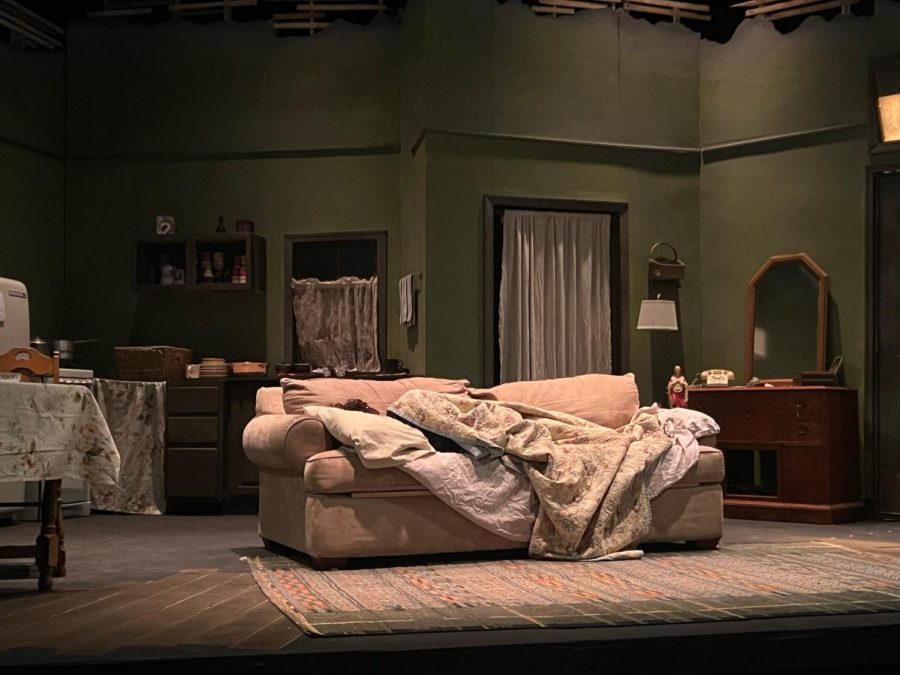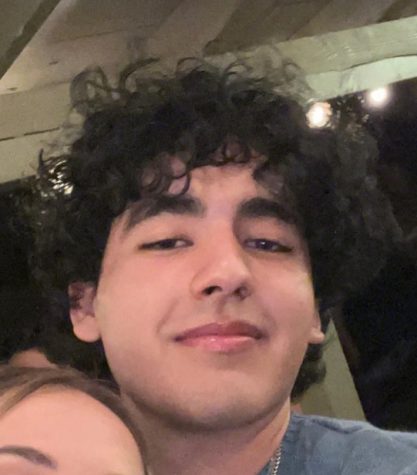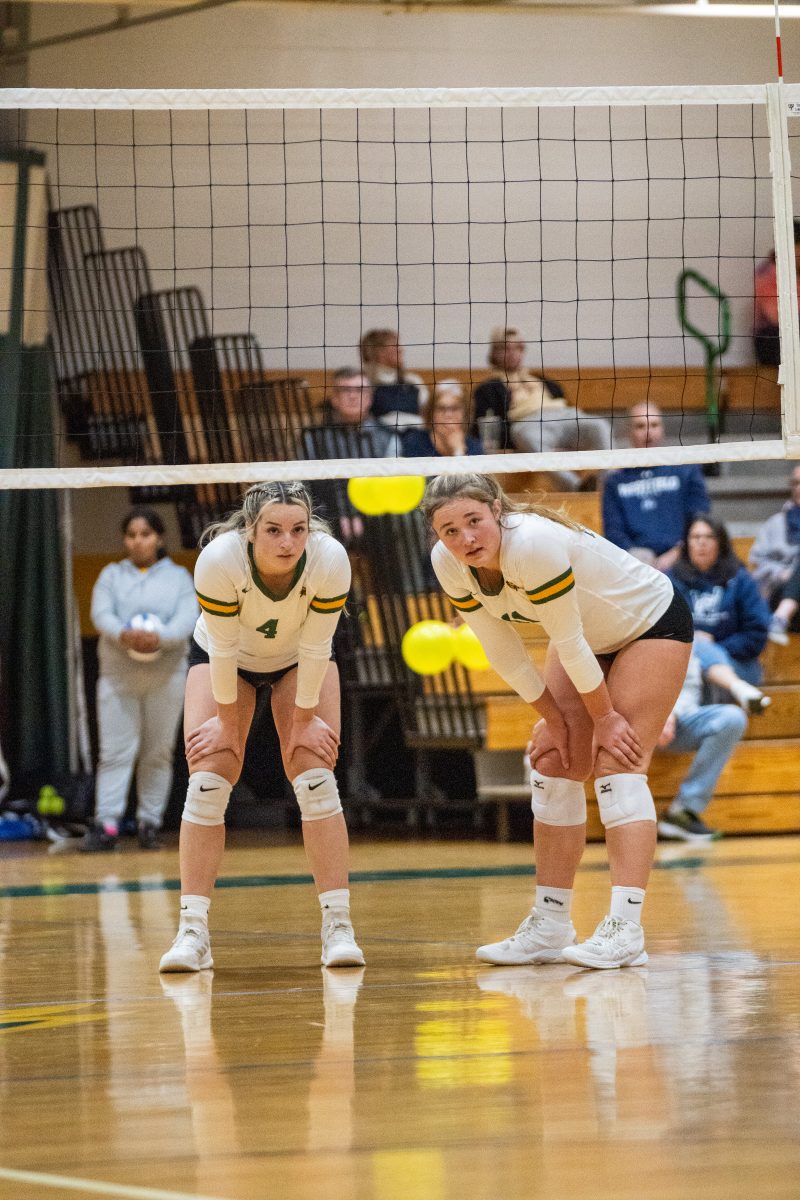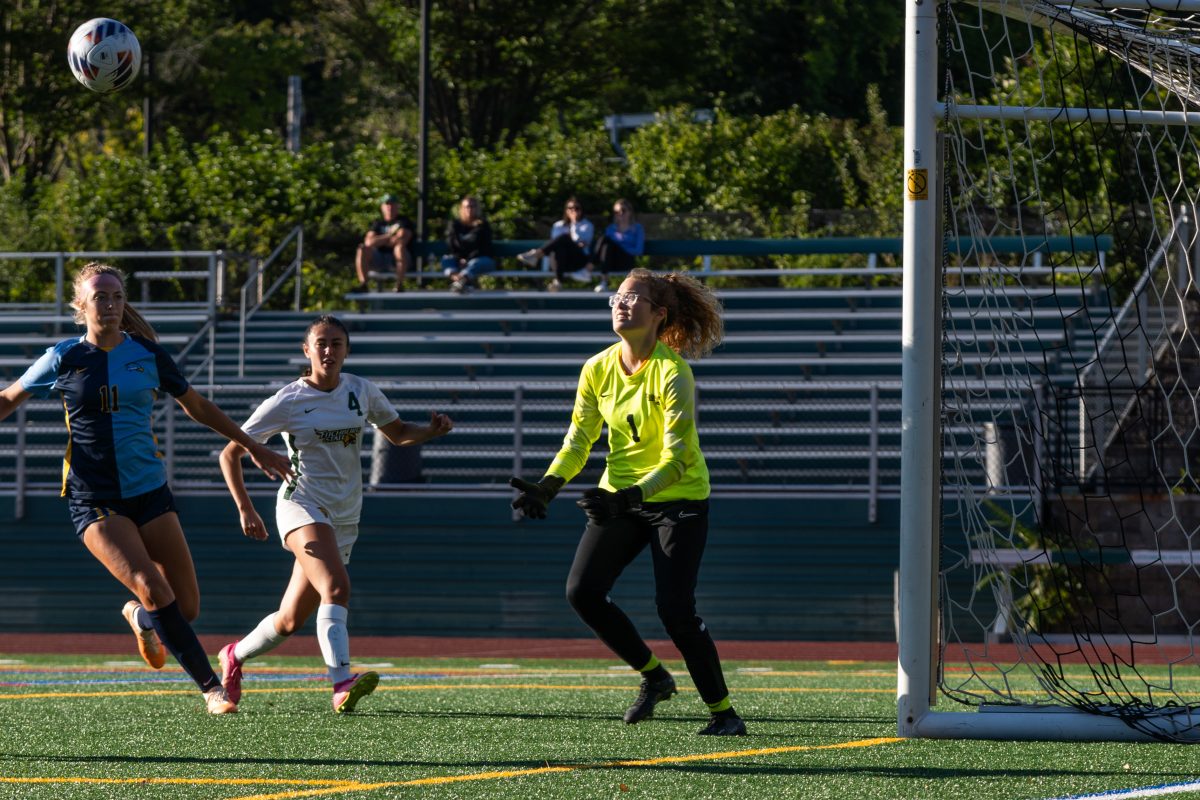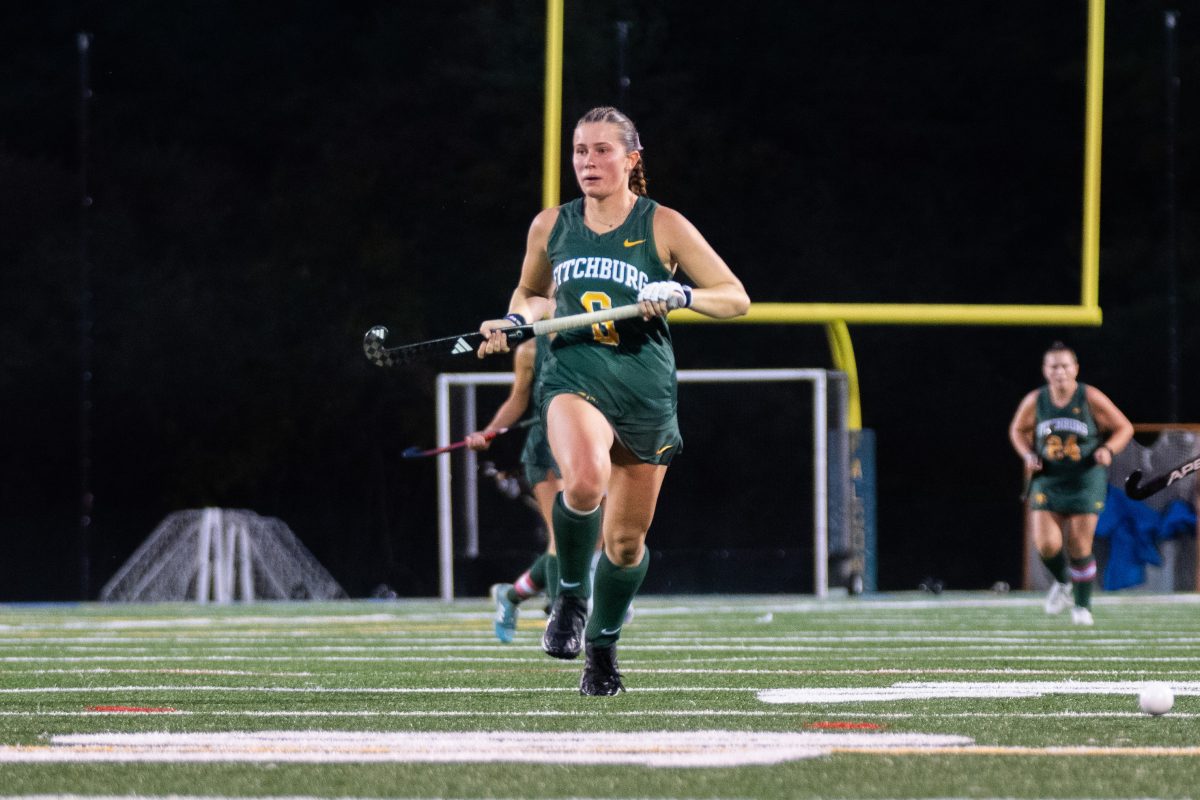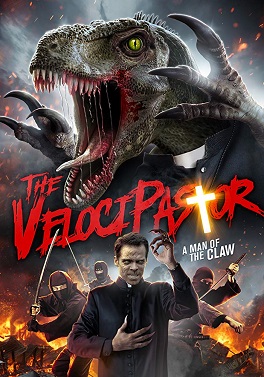Fitchburg State’s Kelly Morgan Directs “A Raisin in the Sun”: “It Exposed Me to a Whole New Way of Understanding People.”
12 year old Dante Gentile (Travis Younger) naps on the set of “A Raisin in the Sun” as guests begin to fill the seats of the auditorium.
December 7, 2022
Nearing the end of a long semester, a play production of “A Raisin in the Sun” welcomed students into the Wallace Theater for the Performing Arts at the McKay Complex. The theater production was organized and set up by the Communications Media Department of Fitchburg State, and held showings the week before Thanksgiving break.
The set illustrated the interior of a beaten up, old home; a child sleeping on a couch working as a makeshift bed tossed and turned as attendees filled the seats of the theater. A couple of minutes after the show was scheduled to start, Kelly Morgan, director of the production, introduced himself to the audience and confided his personal appreciation for the play and how it inspired him to go into theater professionally.
“[A Raisin in the Sun] exposed me to a whole new way of understanding people that I had never met,” said Morgan during a conversation with the Point after the show. “I realized that theater was a place that brought people together because of their differences, but also because of their commonality.”
After guests had settled in, the lights on stage began to fade and a soft lullaby began to play, informing the audience that the play was about to begin. The story began with the chaotic morning routines of the Younger household, and Gabe Mangrum wasted no time in establishing himself, before the audience, as a lead actor. Mangrum, a senior Communications Media major at Fitchburg State, played the role of Walter Lee Younger and despite this being his first leading role, Mangrum unapologetically envelops himself in his character, and delivers two of the show’s most emotional speeches with their due passion.
“I definitely appreciate having the opportunity to be able to show that I have some sort of range,” said Mangrum.
During the climax of the plot, Mangrum’s character, Walter, breaks down in an emotional eruption and reproaches a certain character’s betrayal while looking straight at the audience. The way Mangrum almost targets the attendees while sobbing and screaming feels like something that nears the fourth wall with a distinguished fervor.
“If you think about it from the perspective of somebody who’s older, and you know their life is getting away from them, that’s something that hurts,” said Mangrum when discussing how he rehearsed for his more emotional speeches. “You got people that you really want to take care of, but you can’t. So I kind of put that in my mind to just try to be in that same position—try to have that same perspective.”
Although the play shined in spectacular ways, there were times where the dialogue between characters felt very binary and digital. In such a chaotic household, it was easier to notice how each character had their distinct role, and everyone else was to remain quiet until their turn to speak. When having a conversation with multiple people, it’s very often seen that people are interrupting each other or talking over one another, and it was odd to see that this production didn’t try to replicate that. Because of this, the dialogue between characters sometimes felt strangely synthetic.
The production would make up for this during other scenes, however. For instance, at the beginning of the second act, so much happens at one time. The audience sees Walter’s son, Travis Younger, pleading to his grandma, they see Walter patting his son’s head right after giving sister the stink eye for simply walking in front of him, all the while Ruth Younger, Walter’s wife, is doing her own thing in one corner as the phone rings in another. The viewer’s eyes can barely catch everything that is going on at once, but is fully able to grasp the lawlessness that takes over the house during the mornings. It simply feels like an organic setting, brought to life by Fitchburg State’s students.


